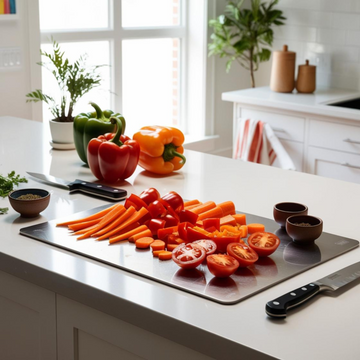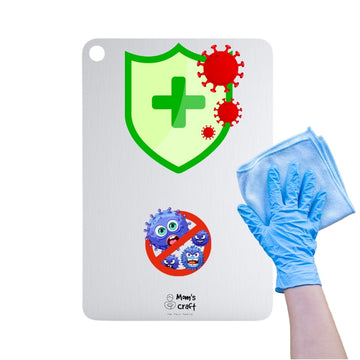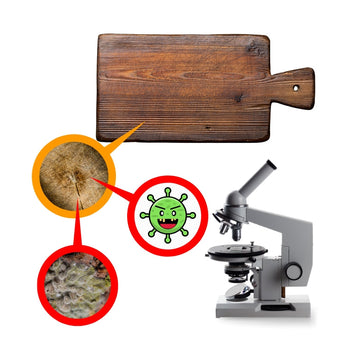In the modern kitchen, the chopping board is an essential tool, used daily for meal preparation. However, the choice of material for your chopping board can significantly impact your health and the environment. While plastic chopping boards have been popular for their affordability and lightweight nature, they come with several hazards that often go unnoticed. In contrast, stainless steel chopping boards offer a safer, more durable, and eco-friendly alternative. Let’s delve into the hazards of plastic chopping boards and why switching to stainless steel is a wise decision.
Hazards of Plastic Chopping Boards
1. Bacterial Contamination
• Micro-grooves and Scratches: Plastic chopping boards are prone to developing grooves and scratches from knives over time. These micro-grooves can harbor bacteria such as E. coli and Salmonella, even after washing, posing a risk of cross-contamination and foodborne illnesses.
• Absorption of Odors and Stains: Plastic boards can absorb and retain odors and stains from various foods, making them difficult to clean thoroughly and potentially contaminating future food preparations.
2. Chemical Leaching
• Harmful Chemicals: Many plastic chopping boards contain chemicals like Bisphenol A (BPA) and phthalates, which can leach into food, especially when the board is scratched or exposed to heat. These chemicals are known to disrupt endocrine functions and may have other long-term health impacts.
3. Environmental Impact
• Non-Biodegradable: Plastic chopping boards contribute to environmental pollution as they are non-biodegradable. When discarded, they end up in landfills or oceans, taking hundreds of years to decompose and contributing to the growing plastic pollution crisis.
4. Degradation Over Time
• Short Lifespan: Plastic chopping boards tend to wear out more quickly compared to other materials. They degrade with use, often becoming discolored, warped, or brittle, necessitating frequent replacements and contributing to waste.
Why Choose Stainless Steel Chopping Boards?
1. Hygienic and Easy to Clean
• Non-Porous Surface: Stainless steel chopping boards have a non-porous surface that resists bacteria buildup, stains, and odors. This makes them extremely hygienic and easy to clean with just soap and water, ensuring a safer food preparation environment.
2. Durability and Longevity
• Scratch and Stain Resistant: Unlike plastic, stainless steel is highly resistant to scratches, stains, and wear and tear. This ensures that your chopping board remains in excellent condition for a long time, providing consistent performance and reducing the need for frequent replacements.
3. Chemical-Free
• No Harmful Additives: Stainless steel does not contain harmful chemicals like BPA or phthalates, ensuring that no harmful substances leach into your food. This makes it a safer choice for your health, especially when preparing hot or acidic foods.
4. Eco-Friendly
• Recyclable and Sustainable: Stainless steel is fully recyclable, making it an environmentally friendly option. Choosing stainless steel helps reduce plastic waste and supports sustainable living practices.
5. Versatility and Functionality
• Multi-Purpose Use: Stainless steel chopping boards can be used for various tasks beyond cutting and chopping, such as serving food or rolling out dough. Their sleek and modern appearance also adds an aesthetic touch to any kitchen.
6. Cost-Effective
• Long-Term Investment: While stainless steel chopping boards may have a higher initial cost compared to plastic, their durability and longevity make them a cost-effective choice in the long run. You save money by not having to replace them frequently.
Conclusion
In conclusion, while plastic chopping boards may seem convenient, they come with several hidden hazards that can affect your health and the environment. Stainless steel chopping boards offer a superior alternative, providing unmatched hygiene, durability, and eco-friendliness. By making the switch to stainless steel, you invest in a safer, more sustainable kitchen tool that will serve you well for years to come. Make the smart choice today for a healthier kitchen and a healthier planet.




